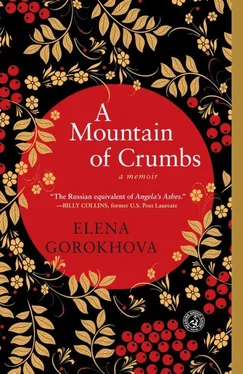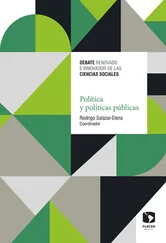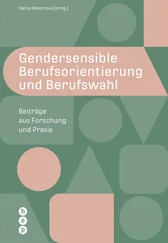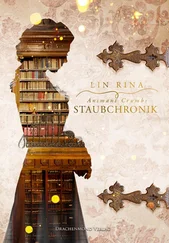The hospital where she was drafted was no more than a railroad car pulled onto an auxiliary track a kilometer and a half from the town of Kalinin, occupied by the Germans. It was there that my mother first saw the indomitable infestations of lice. The wounded came in trucks from the front, a kilometer away, and although she scooped the lice out of the wounds with a teacup and rinsed the flaps of torn tissue as diligently as she could, lice festered in layers of dirty bandages, keeping the wounded awake and screaming through the night. They were younger than she was, those wounded boys—her brothers’ age—and she peered into their dusty faces, clinging to a shred of hope that in some miraculous way her brother would be brought into her hospital for her to heal all the way from the Polish border seven hundred kilometers away.
Every week, in her squared-off handwriting, she wrote a letter home to her parents. My dear Mamochka and Papochka, I hope everyone is well. I hope my sister Muza is a serious student and helping you with the house and garden in my absence. I hope our dear Yuva is fighting against the enemy as fiercely as our boys are fighting here . There were always a lot of hopes in her letters. What she really wanted to say was that she hoped her brother Yuva was not among the thousands of bodies she knew had been plowed into the warm summer earth of western Russia, but of course she couldn’t write that to her parents. As she watched the front line ebb eastward on the map above the Hospital Commissar’s bunk, she had to be careful that her letters did not sound as anxious and gloomy as she felt. Military mail is very slow , she wrote, making up an excuse for why they hadn’t heard from Yuva in six months.
By the beginning of December, when the enemy was pushed out of Kalinin, an order came for the hospital to be transferred into a town school. The school stood at the end of the street, or what used to be a street. Its windows had all been blown away and were now hammered shut with plywood. In the courtyard, two soldiers were digging up the ground, unearthing German corpses buried there before the front line moved south. They piled the bodies by the entrance and then tossed them into a truck to be hauled away from the town center, privates in their underwear and barefoot, officers in uniform and full regalia. She had seen live Germans, too, but only from a distance, when the planes flew low to bomb and the pilots grinned from their glass bubbles and sometimes waved.
My mother’s second husband swept in straight from the front lines. In his captain’s uniform and a wave of blond hair, he was impossible to resist. From the minute she saw his sharp shoulder leaning against the stove in the Commissar’s office, she wanted to touch him, to press herself into his tobacco-permeated military shirt and ask him to protect her. He was called Sasha, like her first husband, and she saw an irony in this coincidence, but also a consistency, a certain kind of order. One night, late, after she finished sewing up the last piece of torn flesh for the day, he accompanied her home to an empty, wind-swept apartment two blocks away and stayed over on the leather gymnasium mat she and a nurse had earlier carried in from the school to serve as a bed.
“Well, here we are,” said my mother in the morning, although she didn’t quite know what this “here” was or where it was exactly that they were. What she did know was that things had to be done in a proper way. A woman, once she went to bed with a man, had to marry him. Or rather, he had to marry her. Either way, they had to preserve poryadok because otherwise who knew what terrible anarchy would be unleashed by such unmarried permissiveness. Bitterly, she thought of her first Sasha, who had had the nerve to doubt her character.
Although the new Sasha resisted a little—rubbing his hairless chin, dragging out reasons why they didn’t need to rush to the marriage bureau at the crack of dawn—my mother was unyielding. She needed order, she told herself, but she knew this was bigger than order. She was drawn to this blond captain like a fly to spilled honey.
This would be a real marriage, she thought, to a man who seemed gentle and kind. He was also a Communist Party member, an ideology leader of his division, undoubtedly a person of high morals and a definitive sense of purpose aimed at the future of the country as well as their own.
The marriage bureau was a desk in a small room where they registered deaths, births, and those missing-in-action. First, on a lined page ripped out of a school composition book, my mother wrote that she was declaring herself divorced from the first Sasha for the reason of “military cataclysm.” She didn’t know if he was dead or alive, and with the country occupied and ravaged, she couldn’t—and didn’t want to—find out. Then, on another page, she declared herself married to the Sasha standing next to her.
“Congratulations,” said the puffy woman behind the desk, who was wearing a coat and an ushanka hat with the earflaps tied under her chin. After inspecting the purple stamps in their passports, Sasha and my mother went to her cold apartment, where the captain drank two tea glasses of vodka and passed out.
A few days later, my mother learned that in the northern town of Atkarsk, her new husband had a common-law wife and a ten-year-old daughter he hadn’t seen since the beginning of the Finnish war. She also learned he had TB, in an open, most contagious form, which was the reason he had been sent from the front to the nearest hospital. Had she waited a little, she would have received a military transfer order with his chart.
It took her another month to figure out he was an alcoholic.
All too late, she thought of my grandmother’s saying, Pospeshish—lyudei nasmeshish . If you do things in haste, you’ll make people laugh.
SPRING BROUGHT WOUNDED CIVILIANS. When the ice on the Volga turned porous and frail, mines frozen into the river began to explode, touched off by the slightest shift, sending flocks of birds into the air and schools of fish to the water surface, belly up. Locals with buckets waded into the river to collect the unexpected harvest floating among chunks of ice, setting off more mines.
It was prohibited to treat civilians in a military hospital. But when a woman brought in an unconscious nine-year-old boy one April morning, my mother didn’t hesitate. She unbuttoned his quilted jacket and muddy pants and carefully pulled them away from his perforated flesh, revealing blind belly wounds: entrances of shells with no exits. Together with the woman, whose son had been killed by the same mine, she carried the boy into the operating room, taking small, slow steps, the two synchronizing their walk. There she lifted a scalpel out of the boiling water, made an incision, and pulled apart flaps of skin, exposing multiple intestinal wounds, big and tiny holes in the coils of the boy’s belly. She rinsed the boy’s intestines with antiseptic and sewed up the holes, one by one.
As soon as she finished, the hospital Commissar stormed in, shouted that she was breaking a military order, and commanded her to report to the director’s office immediately.
“Rules are rules,” muttered Dr. Kremer, hunched over papers on his director’s desk. “You had no right to operate.”
“The patient is nine years old,” my mother said. “He needs to stay here for three more days. After three days I can send him to the town hospital.” She thought of how thickheaded and unperceptive he was, a typical man. In her mind, she returned to the child in the operating room, then tried to conjure up a ten-year-old girl somewhere on the other side of the Urals, the daughter of her new husband, coughing on their gymnasium mat. Or was it she who was thickheaded and unperceptive?
Читать дальше












